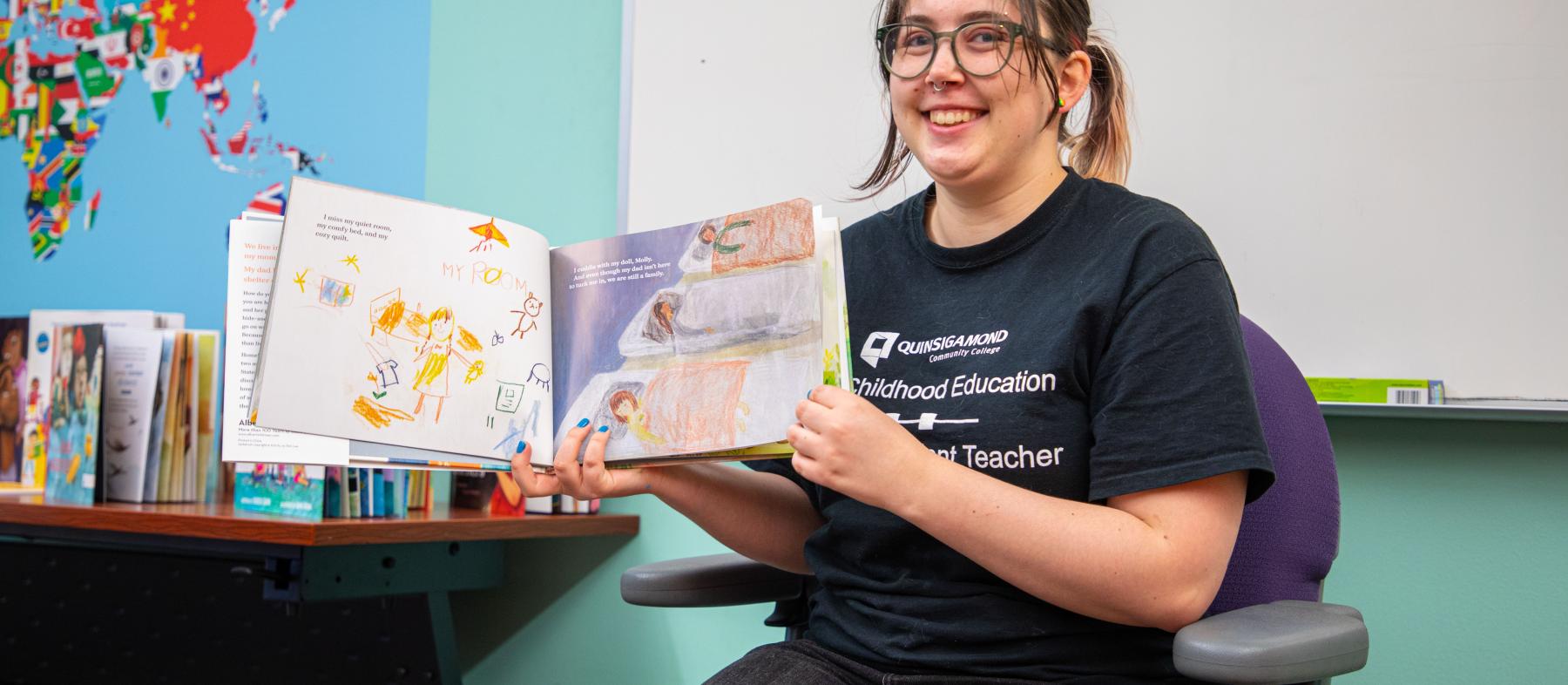Meghan Martin memartin@qcc.mass.edu
Professor Meghan Martin has been teaching both adjunct and fulltime for 18 years. Meghan holds a Bachelor’s of Arts in Sociology from Framingham State College and Master’s in Education from Anna Maria College. Meghan has over 25 years of experience working with children and families. These experiences have included: Infant/Toddler and Preschool classroom teacher, Education Director for a Boys and Girls Club, Family Advocate, Grant Administrator and Director of a child care program. Meghan is a contributing author and editor to the Massachusetts Early Learning Guidelines for Infants and Toddlers. Meghan teaches multiple courses in ECE and works directly with teachers currently working in the field of Early Childhood Education.
Greg Mullaney gmullaney@qcc.mass.edu
Dr. Mullaney graduated Bridgewater State College with a dual undergraduate degree in Special Education and Elementary Education. He left education after a few years of public-school work. With the birth of his second child, he began a career as a family childcare provider that spanned 20 years. Dr. Mullaney attended Lesley University to obtain a Master’s in Early Childhood Education with a concentration in Curriculum and Instruction and became the president of the Association for Family Child Care Providers of Massachusetts for two years. Dr. Mullaney served as the Co-Chair of the Charles River Community Partnership for Children for several years, establishing a collaborative relationship between the family childcare providers, center-based providers, and public pre-school teachers in six communities. In 2007 he completed his doctorate in Child, Youth, and Family studies at Nova Southeastern University in Fort Lauderdale, Florida and continued to operate a family childcare business while working part time at Quinsigamond Community College. While at QCC he began doing work for NAEYC as program reviewer for colleges seeking to get their Associate Degree programs in Early Childhood Education accredited and in 2014 he was hired as full time faculty.
Karen O'Neill, M.Ed. koneill@qcc.mass.edu
Karen has worked in the field of Early Education and Care for over 35 years. She earned a Bachelor of Arts Degree in ECE from Rivier College in Nashua, NH. Karen began her career as a preschool and toddler teacher in community-based childcare programs in NH. In 1991, she moved to Massachusetts and joined the YMCA of Central Massachusetts where she spent nearly 20 years working with children and families of all ages. In her role as Child Care and Family Services Director at the YMCA, Karen was responsible for managing multiple sites including infant, toddler, preschool, kindergarten and school age programs and camps. She provided leadership and guidance regarding health and safety, curriculum development, family engagement, staff development, licensing, and accreditation. During her tenure at the YMCA, Karen served as faculty for the YMCA of the USA Child Care Certification program. She spent time actively engaged in many community boards and committees including the YMCA of MA Public Policy Committee, Community Partnerships for Children, Together for Kids, WAAEYC and the QCC Early Childhood Advisory Board.
In 2011, Karen joined Quinsigamond Community College as the Associate Director at the Children’s School while pursuing and completing her MA Degree in Early Childhood Education from Lesley University. She also volunteered and worked in Shrewsbury Public Schools. Karen has worked as a consultant for Edward Street Child Services and for Head Start regarding early childhood transitions, alignment and NAEYC accreditation. After completing her master’s degree in May 2013, Karen began teaching in the Early Childhood Department at QCC. She taught one year as an adjunct faculty before becoming a fulltime faculty member of the ECE Department in September 2014.
Karen currently serves on the Board of Directors at Edward Street; a community organization that promotes early childhood success.
Julie Tzipori jtzipori@qcc.mass.edu
Julie began teaching at QCC as Adjunct Faculty in 2005, teaching evening classes. She earned a Bachelor’s Degree in Behavioral Sciences from La Trobe University, Victoria, Australia, and her Master’s in Education from Worcester State University. Julie has held a variety of positions throughout her career. She was the Fitness Director at the Worcester Jewish Community Center before taking on a position with the Department of Youth Services (DYS) as the Educational Coordinator. During her 10 years at DYS, Julie was responsible for developing and implementing individualized education plans for adjudicated youth, ages 12-20, supporting their return to community schools, graduating high school or GED completion. Julie also supported youth who were eligible to complete courses from various community colleges in the state. While at DYS Julie developed a trauma sensitive yoga program for the young men to support the life skills and clinical components of their treatment. Following DYS, Julie worked as the Quality Assurance Associate and Document Control Manager at Tufts University’s BSL III laboratory. While at Tufts she taught Good Laboratory Practice (GLP) best practices to students in the Master’s of Global Health and Infectious Diseases program. Throughout this time Julie continued to teach as adjunct faculty for the early childhood program until she was hired as full-time faculty at QCC, in 2017.
Back to Top

